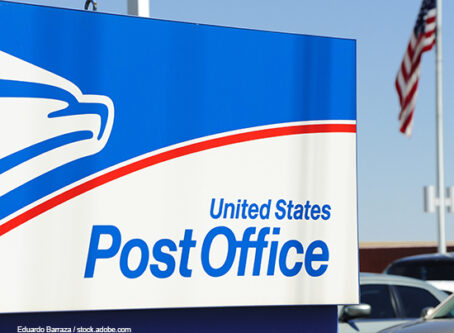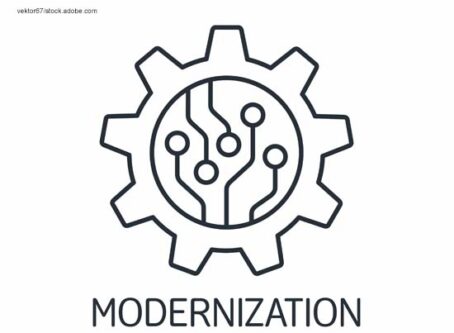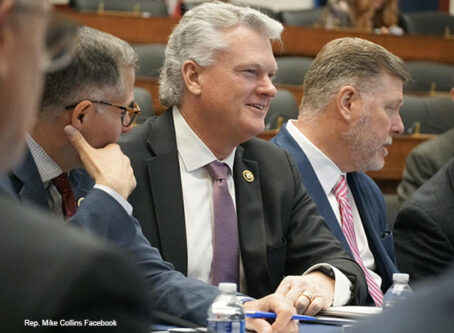Secretary Elaine Chao ‘very sympathetic’ to ELD issue
Among the many topics discussed during a House Transportation and Infrastructure Committee hearing on the White House’s infrastructure proposal with Secretary Elaine Chao, several lawmakers brought up the ELD mandate. Chao’s response to calls by Rep. Brian Babin, R-Texas, to look into more flexible hours-of-service regulations can be described as neutral at best.
Chao testified on Tuesday during a House T&I committee hearing examining the administration’s infrastructure proposal. Although the majority of questions dealt with issues specific to representatives’ districts, several national concerns were brought up, including the ELD mandate and funding.
ELD mandate
At least four committee members addressed concerns with the ELD mandate to Chao. Although most of the concerns applied specifically to the livestock waiver, Babin’s questions to Chao addressed the ELD mandate as a whole.
Babin told Chao that ELDs are “hurting the economy” and that the mandate is “making our shared goal of rebuilding our infrastructure that much harder.” The Texas representative called ELDs counterproductive as a result of inflexible enforcement of hours-of-service regulations. Babin said drivers are forced to drive during times of high congestion, inclement weather and when they are tired or fatigued.
Concerned about the issues surrounding the ELD mandate, Babin asked Chao if he can have her commitment to work with Congress to explore other options. Chao’s response:
“I’m very sympathetic to this issue.”
Chao went on to explain that the Department of Transportation is “very much constrained by the law” and told Babin she will “look forward working with you.”
Rep. Doug LaMalfa, R-Calif., shared Babin’s concerns, stating that “one size doesn’t fit all” in regard to ELDs.
“Hours of service is a problem,” LaMalfa said. “We need flexibility on this. We need flexibility that really works for the drivers and the people who are striving to do this and do it well.”
Along with LaMalfa, Rep. Rodney Davis, R-Ill., and Rep. Mike Bost, R-Ill., were concerned about an ELD exemption request for livestock carriers. Currently, livestock carriers are under a 90-day waiver that ends March 18. The livestock industry has requested a five-year exemption, but it has yet to hear back on it from the Federal Motor Carrier Safety Administration despite the fact the motion picture industry has already received its exemption.
LaMalfa urged Chao to expedite the livestock exemption request as time is running out. Her response?
“I’m very sympathetic to this issue.”
Funding
Lawmakers took exception to President Donald Trump’s funding plan of providing only $200 billion of federal money for a plan that will cost approximately $1.5 trillion, complaining about the passing of the buck to state and local governments.
“We can’t do it on gimmicks, shifting responsibility among partners or glossing over years of underinvestment,” said Rep. Elizabeth Esty, D-Conn. “What we need is a sound, long-term investment at the federal level that will create millions of jobs, boost local economies and pay dividends for generations to come.”
After Esty said that the proposal puts more of burden on the state and local government, Chao mentioned that only 10 percent of the roads are owned by the federal government. Yet, the federal government is still willing to fork over 20 percent of funding.
Esty also said that bonding and tolls for funding at the state and local level is “pushing the costs on Americans not yet born.”
When asked how local governments are to pay for more of funding in addition to the costs they already endure, Chao gave her standard response: “Everything is on the table, and we look forward to working with Congress on those.”
Both Chairman Bill Shuster, R-Pa., and Rep. Rick Larsen, D-Wash., brought up the suggested federal fuel tax increase.
“We have not yet come to a resolution on that,” Chao said.
Chao followed that up by saying “everything is on the table.”
In his opening remarks, Chairman Shuster said that fixing the Highway Trust Fund must be part of the solution.
“The clock is ticking,” Esty said. “Since President Trump took office, time wasted by commuters, travelers and inefficient movement of goods has already cost the American economy more than $179 billion.”









